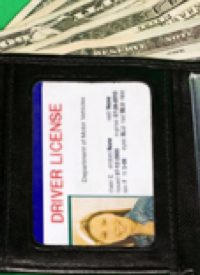
At the signing, Chafee, the son of longtime Republican Sen. John Chafee, explained:
Having reflected a great deal on this issue, I believe that requiring identification at the polling place is a reasonable request to ensure the accuracy and integrity of our elections. Notably, I spoke with representatives of our state’s minority communities, and I found their concerns about voter fraud and their support for this bill particularly compelling.
Since the 2010 elections, several Republican-controlled state governments have moved to enact voter ID cards as ways of controlling voter fraud. Republicans are a distinct minority in Rhode Island's legislature, and it is the Democrats who passed the bill. Democratic State Senator Harold Metts, who supported the bill, commented: “As a minority citizen and a senior citizen I would not support anything that I thought would present obstacles or limit protections."
While Democrats, Republicans, and the Independent Governor Chafee all supported this reform in Rhode Island, in other states the issue of controlling voter fraud has been cast as a partisan attempt by Republicans to suppress the vote. In five states — North Carolina, Montana, Missouri, Minnesota, and New Hampshire — Republicans control both houses of the legislature while the Governor is a Democrat. In each of these states the Democrat Governor vetoed the Republican-passed bills to require voter identification before casting a ballot. New Hampshire Governor John Lynch objected on the grounds that such a move could make it hard for senior citizens, students, and handicapped people to vote.
Fourteen states either now require photo identification cards in order to vote or have passed laws that will impose this requirement. Twenty-nine other states require some form of identification before voting. Analysts point to the scandal involving the left-wing activist organization ACORN — which drew national attention to the scope of voter fraud in America — as a main impetus toward enacting these laws.
The federal government and many large corporations and sensitive industries already have a photo-ID requirement as a condition of employment.



